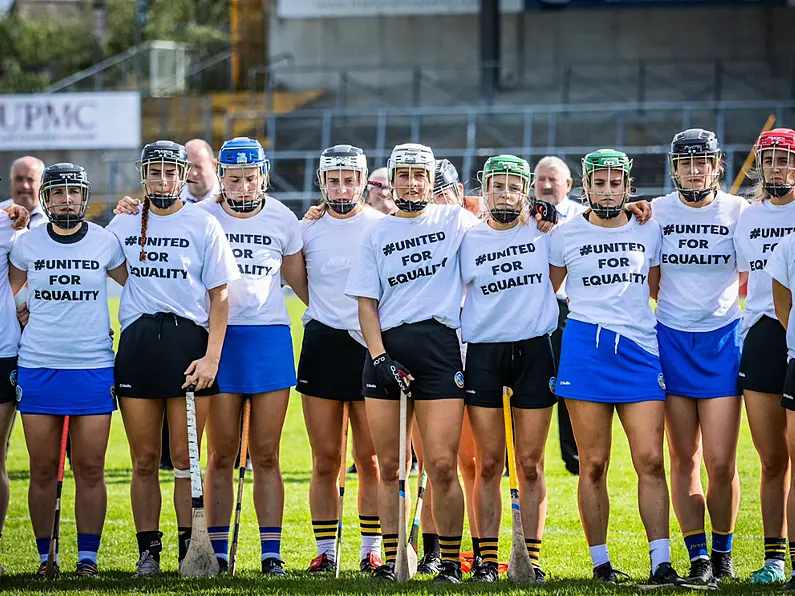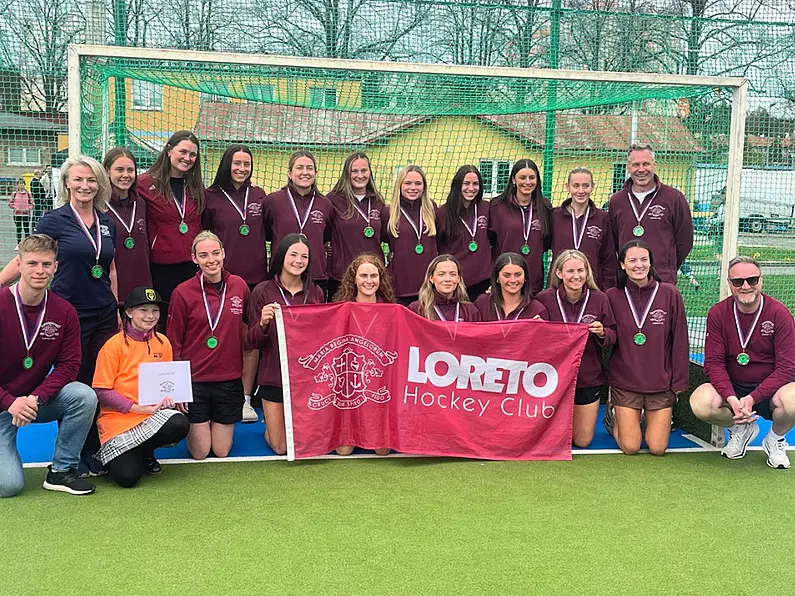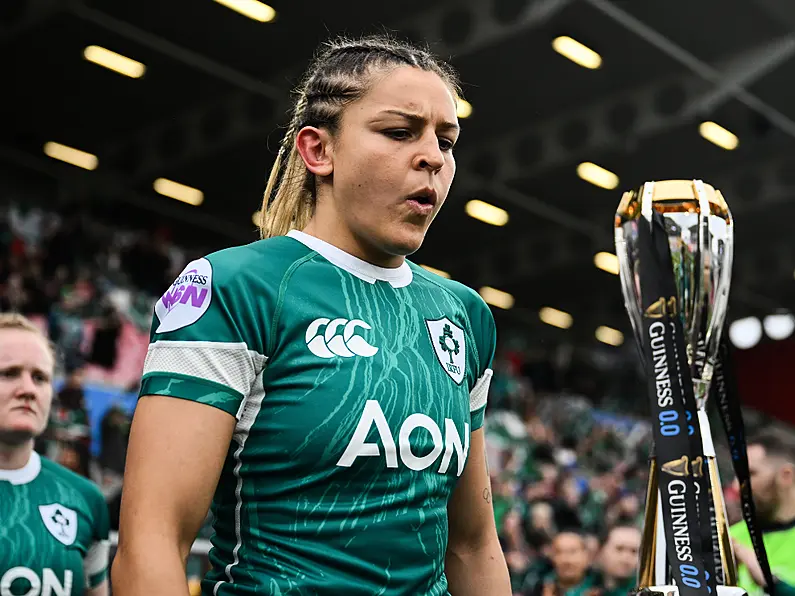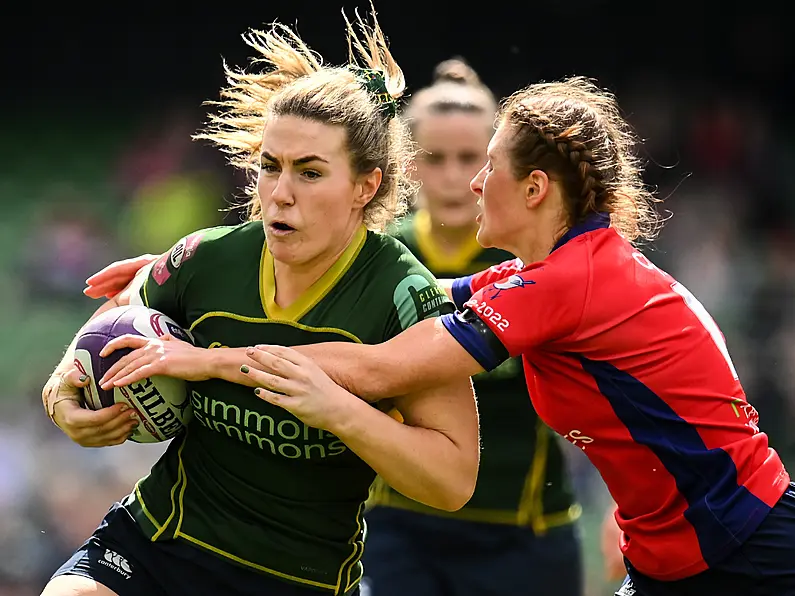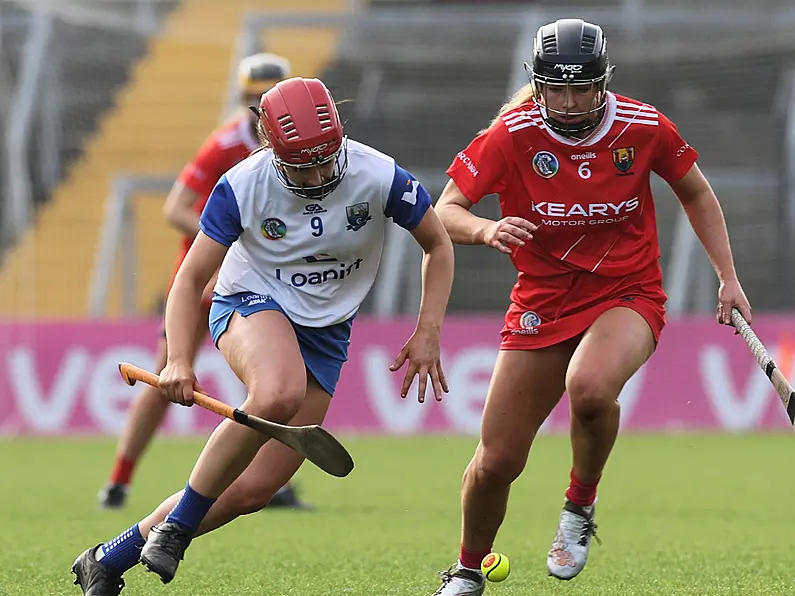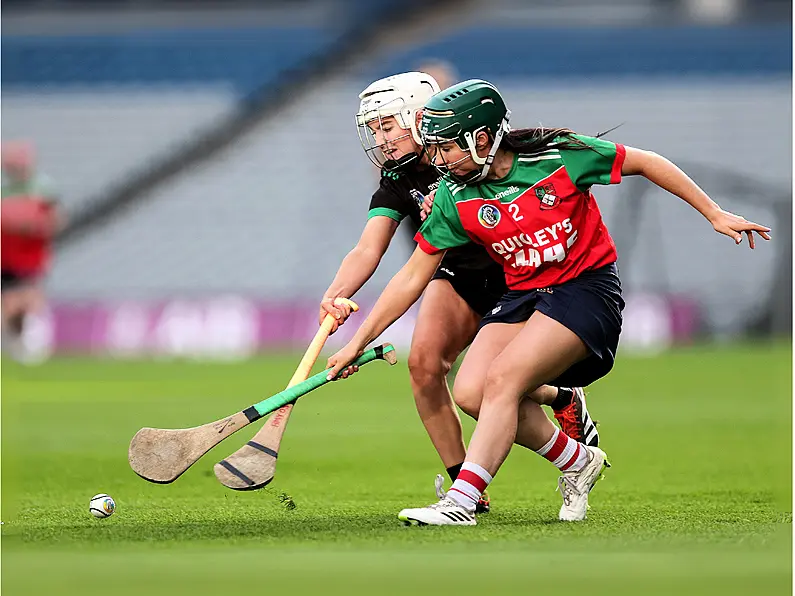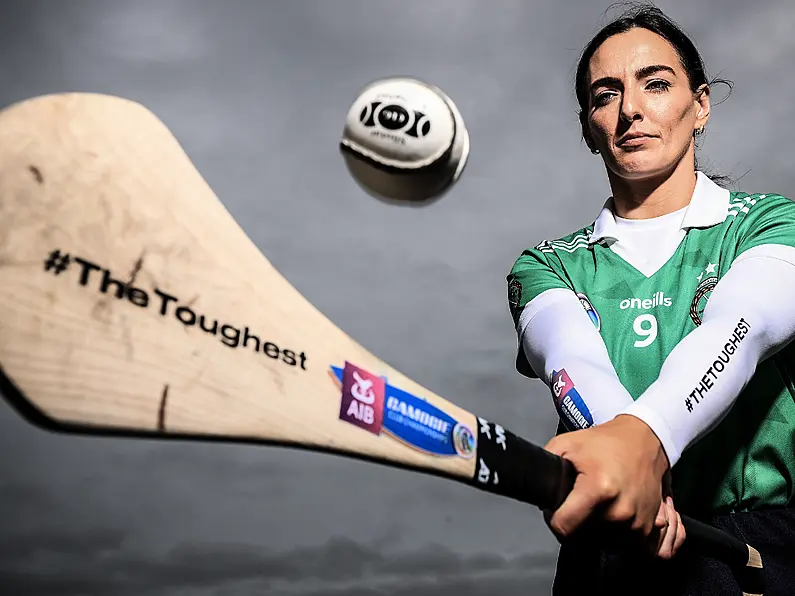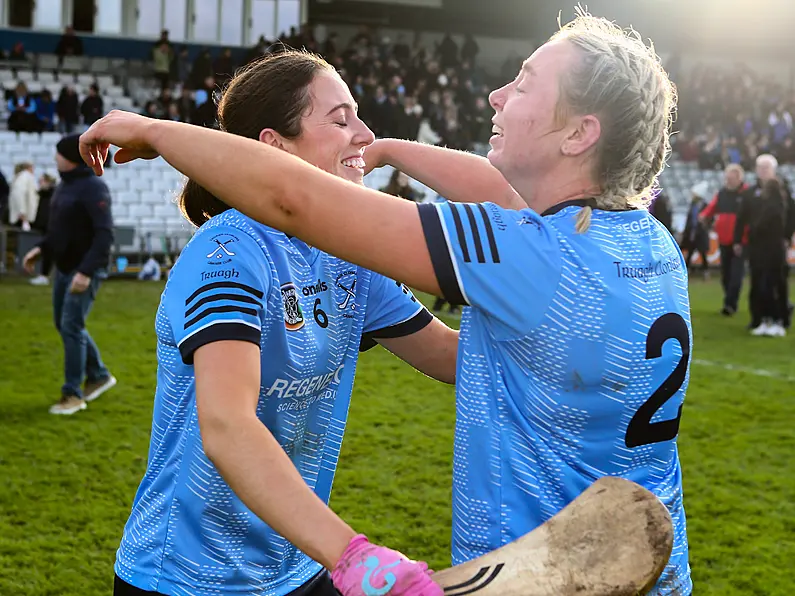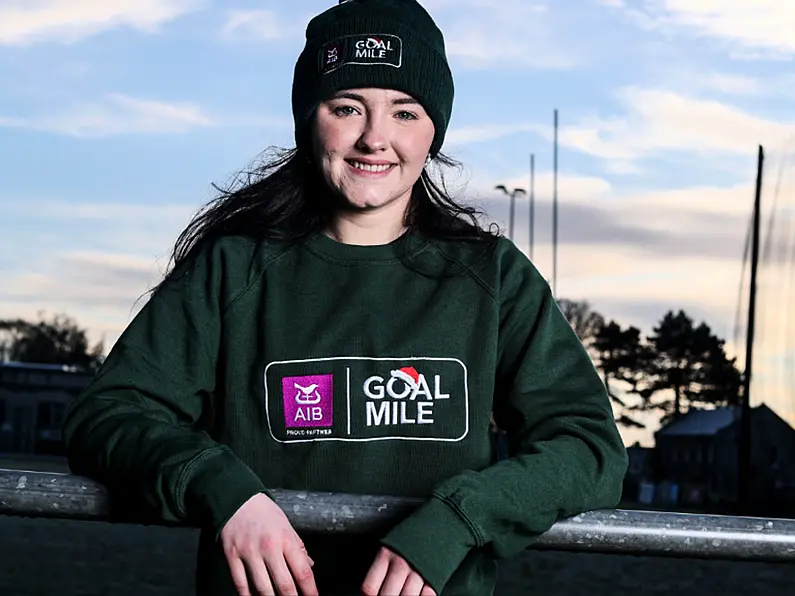Photo by @DammitMarty
The final round of group stage weekend fixtures in the TG4 Ladies Football and the Glen Dimplex Camogie All Ireland Championships saw protest from players on all the teams over the slower than hoped-for progress of equal rights for Women and Men across Gaelic Games.
Last weekend saw a mix of sit-down and stand-together protests at games that were unanimously backed by all players and by all bar a small number of management teams across the country.
Two games were shown live on TG4 in the All Ireland Football Championship and a host of games streamed live, bringing the protest to a wider audience than those at the grounds.
The call for a player charter that would deliver minimum standards of player care and facility standards across all four codes in Men’s and Women’s Gaelic Games was seen as a major element of a survey of all players conducted by the Gaelic Players Association and presented to each of the LGFA, Camogie Association and GAA earlier this year.
The integration of the three associations has been approved in principle by each of the three and a high-level integration group is working towards the next stage of this. Players timetables will always be shorter than those of administrators however and that is what has given rise to these protest which began last week and will most likely continue.
There was also extra fractiousness this weekend with the blowing up of another fixture clash with Cork Senior camogie and Ladies Football Championship matches throwing in within an hour of each other in Clare and Cork. Cork have four players on the panel of both teams who were forced to choose between one or the other.
Both Associations said that there are multiple reasons from tight schedules of competition to the inability of other teams to switch, that have meant no accommodation could be reached to switch one or other of the games.
Clashes are not unheard of in Championship seasons where there are more games to be played than there are weekends on which to play them to cover every eventuality.
Last weekend, Cork Senior Hurlers and Footballers were in Championship action on Friday night and Sunday afternoon but there is less of an emphasis in the modern ,men’s game on players lining out in both codes.
Questions have been asked of why the men’s teams have not joined in these protests but that is because they have not been asked. In time that may change and we understand there is strong support among player camps in hurling and men’s football to do so.
Integration as such will not create more time in the calendar but it will help to have a single fixture planning body that can be aware of and facilitate movement in clashes where they might occur in the future.
The issue of the players charter is one where there is greater scope to be seen as accommodating the needs of the players.
A charter should be looked at in a similar fashion to that of a declaration of independence as an aspiration of how we see ourselves and what we want to achieve.
Fixating on the immediate situation means that we do not get to agree a path towards the future, with deliberate advances factored in that will enable everyone to see that the progress undoubtedly going on behind the scenes is real and will be accountable.
For this past weekend again the impression was that the dual speed of progress in men’s and women’s is seen as unimportant. That is not the case but if it is the perception, then that is a problem.
It’s one that is not going away any time soon and one which could escalate as we head towards the business end of the Championship season.
